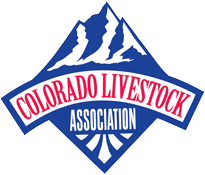GREELEY, CO – This week, the Colorado Supreme Court ruled in favor of a feedyard in Yuma County that experienced a once-in-50-years rainfall event almost six years ago.
“Those who rely upon the land for their livelihood and industry are typically the best stewards of that land, and 5 Star is no exception,” Christopher P. Carrington, an attorney for 5 Star, said. Carrington called the Supreme Court’s decision a “win for common sense.”
Following the storm in 2015, the Colorado Division of Wildlife (CDW) received a report of dead fish in local fishing ponds and a run-off from a local feedyard was being blamed. Even though the feedyard had taken the appropriate measures and was in compliance with state regulations the Colorado Attorney General’s office filed an action against the feedyard, accusing the owners of “unlawful taking” of 14,711 fish and levied fines against the feedyard. In February 2018, a district court judge in Yuma County issued a summary judgement finding the feedyard liable.
In January 2019, the Colorado Livestock Association engaged its legal counsel to prepare and file an Amicus Curiae Brief with the Colorado Court of Appeals in support of the feedyard’s appeal. CLA was joined in the effort by the Colorado Farm Bureau, Colorado Corn Growers Association, Colorado Cattlemen’s Association, and the National Cattlemen’s Beef Association. The Court reversed what the trial court had done and ordered that Judgement now enter in favor of the feedyard.
This is the right result and should serve to protect livestock producers from similar lawsuits.
Read the Supreme Court’s Opinion: https://bit.ly/3enK4oG
Decades of Work Protecting the Environment
Livestock production naturally results in byproducts, including: manure, urine, bedding, feed waste, dry harvested forage, and other related raw materials. Farmers and ranchers are mindful of the value of these byproducts and their use has proven to be beneficial to agriculture’s long-term sustainability.
In 1998, members of the CLA Board of Directors approached the Colorado Department of Public Health and Environment (CDPHE) and discussed the possibility of formulating regulations for operating feedyards, dairies, and hog operations of a certain size called Concentrated Animal Feeding Operations (CAFOs). CLA members, representatives of CDPHE, and other interested parties engaged in a robust stakeholder process over a period of several years to develop regulations governing CAFO operations. The regulations first became effective on April 14, 2003, and have been revised on July 24, 2007, and again on December 22, 2008.
Now, CDPHE routinely inspects and monitors CAFO facilities in an effort to minimize the potential of a discharge or release of effluent to waters of the state or the U.S. CDPHE’s rules require a CAFO to construct bermed retention facilities to store these materials.
Complying with CAFO regulations is an intense and extremely detailed process. It involves a rigorous review and study of the storage and utilization of effluent, location of all nearby functional wells, names and locations of public roads, names and locations of surface waters that may receive discharge, the number of animals, designs, calculations, drawings, specification tables, and other documents which are prepared by, or reviewed by, professional engineers registered in Colorado.
Members of the Colorado Livestock Association’s Natural Resources Committee meet regularly with employees of the CDPHE’s Environmental Ag Program, the division that enforces CAFO regulations, to continue this cooperative effort to protect Colorado’s natural resources.
